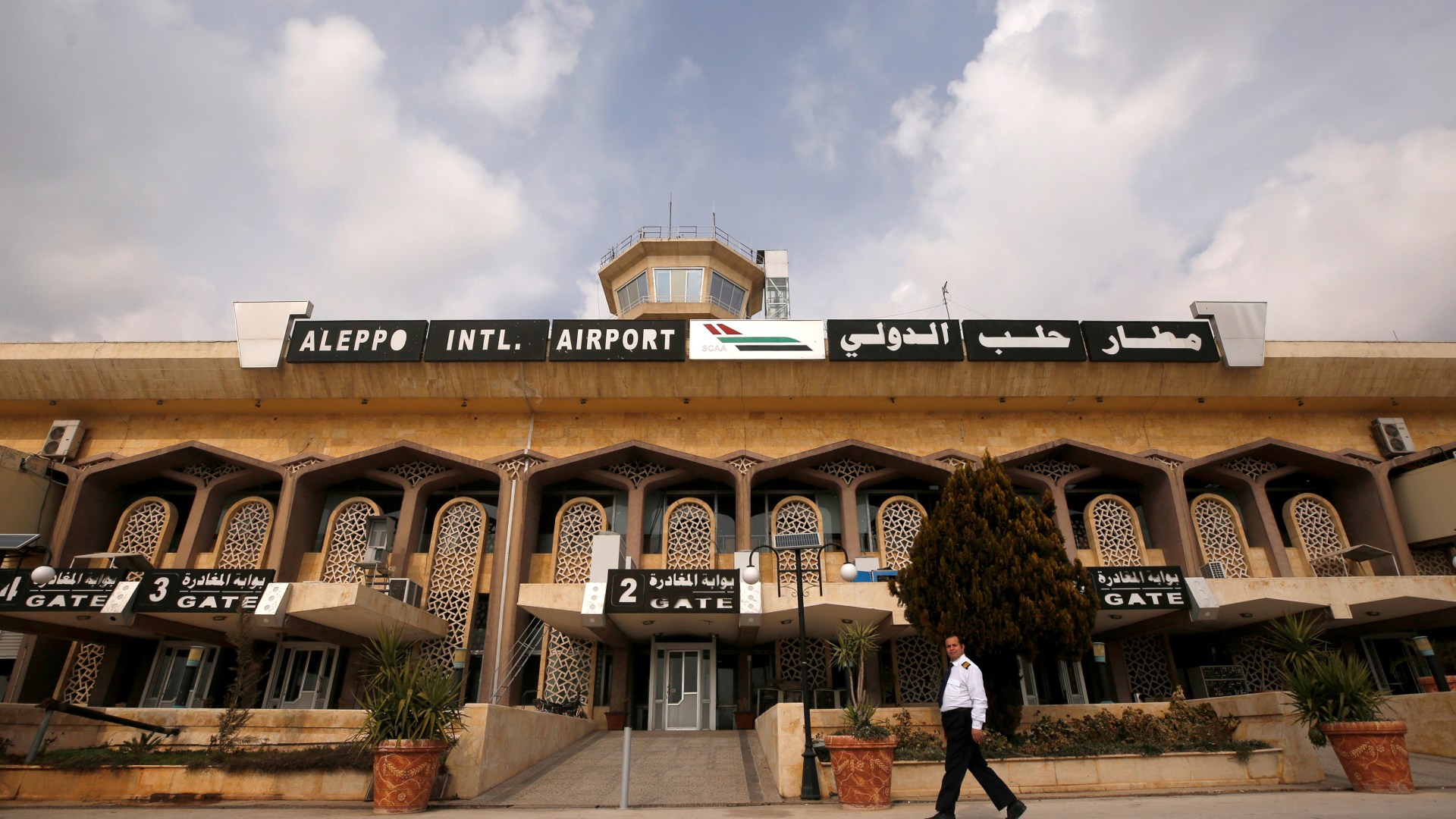Israel forces simultaneously bombed the Damascus and Aleppo airports in Syria early on Thursday October 12, in flagrant violation of international law. According to a report from the Syrian Arab News Agency (SANA), the airstrips in both airports–which are primarily for civilian use–were damaged and both airports were taken out of service. Flights were instead diverted to Latakia in Northwest Syria. Israel has yet to speak publicly on the strikes.
In response to the strikes, the Syrian Foreign Ministry said in a statement that the attack was an attempt by Israel to “export its crises, inflame the situation in the region, and divert attention from war crimes, crimes against humanity, and mass massacres committed against innocent Palestinians in the Gaza Strip, who are subjected to a brutal campaign of killing and indiscriminate and barbaric bombing that targeted infrastructure and facilities.”
The Ministry added that Israel’s actions against Palestinians in Gaza are in violation of international law and the UN convention.
Russia’s Foreign Ministry also sharply condemned the bombing of Syrian airports, calling it a violation of Syrian sovereignty and international law.
“In the context of the sharp escalation of the situation in the Palestinian-Israeli conflict zone, such forceful actions may lead to extremely dangerous consequences, as they could provoke an armed escalation throughout the region. That must never be allowed to happen,” the ministry said.
The Israeli airstrikes in Syria come five days after Hamas and other Palestinian groups launched an offensive against Israel, catching Israel by surprise and allowing resistance groups to temporarily take control over vast amounts of Israeli held territory. So far, 1,300 have been killed in the offensive and more than 150 have been taken hostage, according to Israeli authorities.
Israel responded with an indiscriminate bombing campaign of Gaza, which has caused massive devastation and displaced 340,000 Palestinians, according to the United Nations. Meanwhile, 1,448 Palestinians have been killed in the bombings and more than 6,900 have been injured since the offensive began, according to the Palestinian Ministry of Health. Israel has also tightened its 16 year blockade of Gaza, cutting off all fuel, electricity, water, and food to the enclave, in what amounts to a deliberate targeting of Palestinian civilians and the collective punishment of the Palestinian people.
Could violence spill over?
The possibility of a widening conflict is an increasing possibility with the latest airstrike on Syria. A day prior, on October 11, Israel was also shelling towns and military outposts in Southern Lebanon and carried out an airstrike against what it described as a Hezbollah position. In response, Hezbollah said they launched two precision missiles at Israel. No casualties have been reported yet from the fighting.
The US has also stepped up its role in the conflict. On Sunday August 8, US Defense Secretary Lloyd Austin announced that the US would send an aircraft carrier to the region to “bolster regional deterrence efforts.” The aircraft carrier arrived in the eastern Mediterranean Sea on Tuesday.
“Sending aircraft carriers to the region with the aim of raising the morale of the enemy and its frustrated soldiers reveals the weakness of the Zionist military machine,” Hezbollah said in a statement. “Our nation and the resistance factions are ready for confrontation until final victory and complete liberation are achieved.”
The possibility of escalation may come to a head as Israel appears to be gearing up for a ground invasion of Gaza. So far, 360,000 reservists have been called to duty and have began amassing troops at the border with Gaza.





